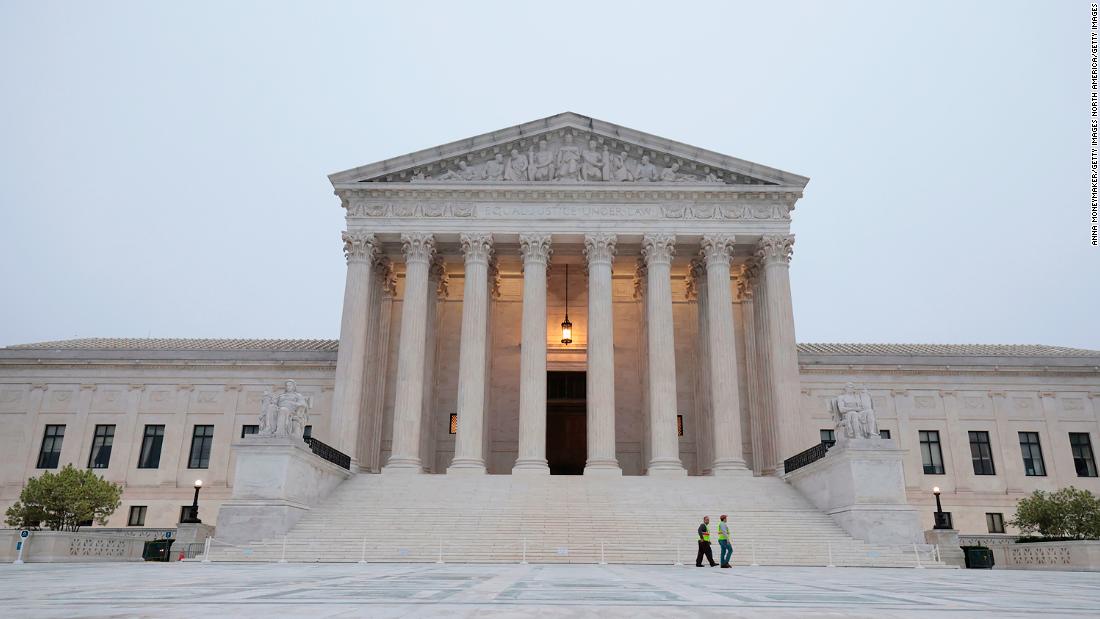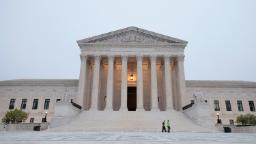

“Really what the Supreme Court is limiting here is creative, broad interpretations of statute,” said Nathan Arnold, a senior policy advisor at EducationCounsel, a consulting firm in Washington, DC. He previously worked for eight years at the Department of Education under both the Obama and Trump administrations, serving as chief of staff to the acting under secretary and senior policy advisor in the Office of Postsecondary Education.
Arnold said he thinks the recent Supreme Court decision in the EPA case makes clear that federal agencies “have a new hurdle to clear” before taking certain actions.
“I would not be surprised if this decision is impacting their calculus on the question of loan forgiveness,” Arnold added, referring to the Biden administration’s lawyers.
Recent Supreme Court decisions rule against aggressive agency actions
In the recent EPA case, the Supreme Court was considering an Obama-era climate rule (never adopted by the Biden administration) that relied on a 1970 provision of the Clean Air Act. The conservative majority said the rule exceeded the authority given to the EPA under the law, with the court explicitly citing what’s known as the “major questions doctrine.”
In previous cases this term, the Supreme Court’s conservative majority rejected agency claims of regulatory authority because, in the court’s view, it concerned an issue of vast economic and political significance — and the justices concluded that Congress had not clearly empowered the agency with that sweeping authority over the issue.
Never had the Supreme Court so forthrightly wielded the major questions doctrine as it did in this year’s climate change case, citing it by name for the first time in a formal majority opinion.
Previously, in a case where the court blocked the administration’s eviction moratorium, the court wrote in August: “We expect Congress to speak clearly when authorizing an agency to exercise powers of vast ‘economic and political significance.'” (The three liberal justices dissented from the unsigned order.)
The court used similar language in January, when the conservative bloc ruled against the Biden administration’s vaccine mandate for large employers.
What the law says about canceling student loan debt
An executive action directing the education secretary to broadly cancel federal student loan debt would be unprecedented — and therefore, questions about whether Congress has clearly given the executive branch authority to do so has yet to be tested in court.
Biden initially urged Congress to take action to cancel student debt, rather than wade into a murky legal area himself. But Democrats likely don’t have the votes to pass a bill canceling student debt in the Senate despite support from key party members including Senate Majority Leader Chuck Schumer and Massachusetts Sen. Elizabeth Warren.
Last year, Biden directed lawyers at the Departments of Education and Justice to evaluate whether he does, in fact, have the power to broadly cancel federal student loan debt. The administration has not disclosed those findings.
But if the major questions doctrine comes into play, courts may find that if Congress had intended for the authority to be used in such a sweeping manner as to broadly cancel student loan debt, it would have said so more clearly in the statute.
Two of the authors of the memo sent to Warren were not available for comment for this story. The third author, Toby Merrill, has since joined the Department of Education as deputy general counsel and referred CNN to the department’s spokesperson.
Luke Herrine, an assistant law professor at the University of Alabama who previously worked on legal strategy pushing for student debt cancellation, also said he believes that Congress has given the Department of Education “multiple powers to cancel student debt.”
But given the recent Supreme Court decisions, Herrine could see the current justices striking down an executive action to broadly do so. Traditionally the courts have deferred to the federal agency when issues arise concerning an ambiguous statute. But there has been a shift.
“To me, the courts are basically saying, ‘We’re going to have the first say,'” Herrine said.
Another factor that may come into play is that the Department of Education has only very narrowly used the power to cancel student debt to date. It almost never used the power until the Obama administration faced pressure from activists like the Debt Collective — where Herrine previously worked — to cancel the debt of borrowers who were defrauded by for-profit colleges, under a rule known as borrower defense to repayment.
A long road to the Supreme Court
Even if Biden decides to broadly cancel federal student debt, that doesn’t mean a lawsuit would be filed or that the case would eventually make it to the Supreme Court.
First, it’s unclear who would have standing to bring a case, a procedural threshold requiring that an injury had been inflicted on a plaintiff justifying the lawsuit. It’s unlikely to be a borrower who didn’t qualify for forgiveness, but could potentially be a student loan servicer or collection agency, according to Arnold, who also said that typically anyone who would lose money as a direct result of the cancellation could have standing.
If the standing hurdle is cleared, the case would be heard by a district court first — which may or may not issue a preliminary injunction to prevent the cancellation from occurring before a final ruling is issued on the merits of the hypothetical case.
The proceedings would likely then travel to an appeals court, which might give the ultimate word, given the small portion of cases the Supreme Court takes up.
But if the Biden administration cancels student debt with an executive action and that move is challenged, lower court judges will be looking at what the Supreme Court has said in its prior cases touching on agency power when assessing the Department of Education’s authority.
